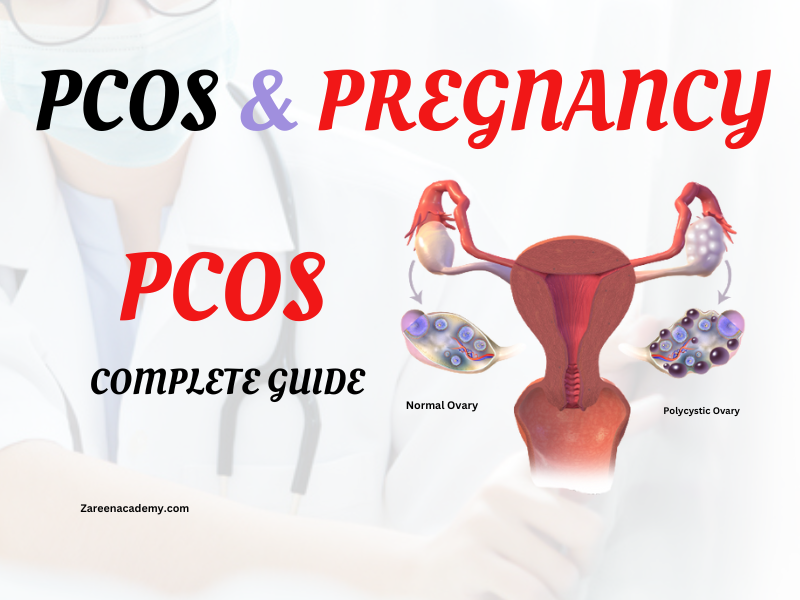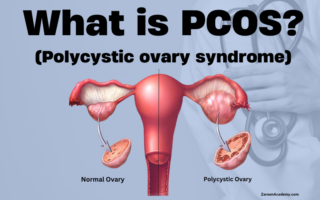Introduction
PCOS, short for Polycystic Ovary Syndrome, is a common hormonal disorder among women of childbearing age. While it can affect various aspects of a woman’s health, one significant concern is its impact on fertility and pregnancy. In this comprehensive guide, we delve into the complex relationship between PCOS and pregnancy, providing insights and answers to your most pressing questions.
PCOS and Pregnancy: Navigating the Challenges
Polycystic Ovary Syndrome (PCOS) can present unique challenges for women looking to conceive. Understanding how it affects your fertility and pregnancy is crucial.
What is PCOS and Its Link to Fertility
PCOS is a hormonal disorder characterized by irregular periods, excess androgen levels, and cysts in the ovaries. These factors can make it challenging to conceive. Women with PCOS often experience infrequent ovulation, making it harder to get pregnant.
The Impact of Weight on Fertility
Weight plays a significant role in the connection between PCOS & pregnancy. Excess body weight can worsen PCOS symptoms and hinder fertility. Managing your weight through a balanced diet and regular exercise can improve your chances of conceiving.
Hormonal Imbalances and Ovulation
Hormonal imbalances are a hallmark of PCOS, which can disrupt the ovulation process. Medications, lifestyle changes, or fertility treatments can help regulate hormones and induce ovulation.
Managing PCOS During Pregnancy
Getting pregnant with PCOS is a significant milestone, but the journey doesn’t end there. Managing PCOS during pregnancy is equally crucial. Regular prenatal care, monitoring blood sugar levels, and managing weight gain are essential to a healthy pregnancy.
Balancing PCOS and Motherhood
Balancing PCOS and motherhood is a manageable challenge with the right knowledge and support.
Nutritional Guidance
Proper nutrition is vital for women with PCOS during and after pregnancy. A balanced diet can help manage weight and reduce the risk of gestational diabetes, a common concern for pregnant women with PCOS.
Exercise and Pregnancy
Regular exercise during pregnancy is essential for overall health. Women with PCOS should consult their healthcare providers to design a safe and effective exercise routine.
Emotional Well-being
The emotional toll of PCOS can be significant. It’s essential to seek emotional support and counseling during and after pregnancy, as it can help reduce stress and improve overall well-being.
Gestational Diabetes and PCOS
Pregnant women with PCOS are at a higher risk of gestational diabetes. Regular monitoring and management of blood sugar levels are crucial in reducing complications.
FAQs
Can women with PCOS get pregnant naturally?
Yes, but it may be more challenging. Many women with PCOS do conceive naturally, but some may require medical assistance.
What fertility treatments are available for women with PCOS?
Fertility treatments such as ovulation-inducing medications and in vitro fertilization (IVF) are common options.
Are there any natural remedies for managing PCOS during pregnancy?
While no natural remedies can cure PCOS, a balanced diet and regular exercise can help manage symptoms.
How does PCOS affect the risk of miscarriage?
Women with PCOS are at a slightly higher risk of miscarriage, but with proper medical care, this risk can be reduced.
Is it safe to take PCOS medications during pregnancy?
It’s essential to consult your healthcare provider regarding the safety of PCOS medications during pregnancy. In some cases, adjustments may be needed.
Can PCOS be cured after pregnancy?
PCOS is a lifelong condition, but symptoms can be managed effectively through lifestyle changes and medications.
Conclusion
Navigating the journey of PCOS and pregnancy can be challenging, but it’s entirely possible with the right information and support. By understanding how PCOS affects fertility and taking proactive steps to manage it, you can increase your chances of a healthy pregnancy. Remember, you’re not alone, and there are resources and healthcare providers ready to assist you on this remarkable journey.




